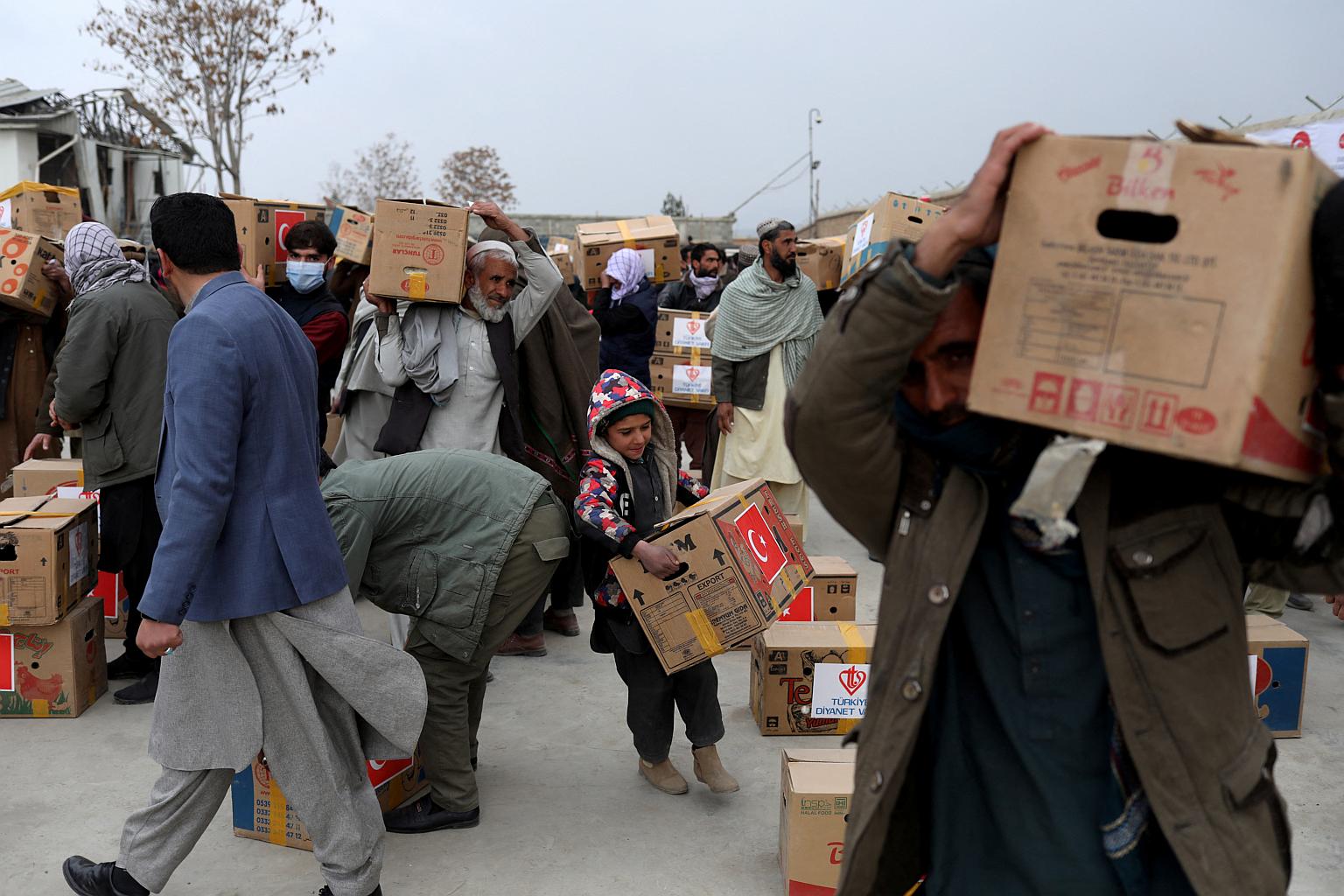Islamic countries meet to discuss aid for Afghanistan
Sign up now: Get insights on Asia's fast-moving developments

Afghans carrying aid packages from a Turkish humanitarian aid group at a distribution centre in Kabul, Afghanistan, on Dec 15, 2021.
PHOTO: REUTERS
ISLAMABAD (AFP) - Envoys from 57 Islamic nations as well as observer delegations were meeting in Pakistan on Sunday (Dec 19) for a summit aimed at relieving the humanitarian crisis in neighbouring Afghanistan, while testing diplomatic ties with its new Taliban rulers.
The meeting of the Organisation of Islamic Cooperation (OIC) is the biggest major conference on Afghanistan since the United States-backed government fell in August.
After the Taliban's lightning return to power, billions of dollars in aid and assets were frozen by the international community, and the nation of 38 million now faces a bitter winter.
The United Nations has repeatedly warned that Afghanistan is on the brink of the world's worst humanitarian emergency with a combined food, fuel and cash crisis.
On Sunday, Pakistan's capital was on lockdown, ring-fenced with barbed wire barriers and shipping-container roadblocks where police and soldiers stood guard.
Any aid pledges were set to be announced on Sunday evening.
Taliban Foreign Minister Amir Khan Muttaqi was among the delegates, alongside others from the US, China, Russia, the European Union and the UN.
Pakistani officials said 70 delegations were taking part.
No nations have yet formally recognised the Taliban government and diplomats face the delicate task of channelling aid to the stricken Afghan economy without also propping up the hard-line Islamists.
Pakistani Foreign Minister Shah Mahmood Qureshi said the meeting would speak "for the people of Afghanistan" rather than "a particular group".
Pakistan, Saudi Arabia and the United Arab Emirates were the only three countries to recognise the previous Taliban government of 1996 to 2001.
Mr Qureshi said there was a difference between "recognition and engagement" with the new order in Kabul.
"Let us nudge them through persuasion, through incentives, to move in the right direction," he told reporters ahead of the OIC meeting.
"A policy of coercion and intimidation did not work. If it had worked, we wouldn't have been in this situation."


